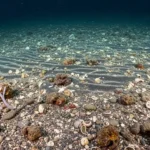Oceanographic vessels stand as the stalwart pioneers of scientific exploration, navigating the vast and mysterious expanses of the world’s oceans. This article explores the expansive realm of oceanographic vessels, examining their significance, tracing the evolution of key technologies, and investigating diverse applications, while also envisioning the transformative possibilities they hold for advancing our understanding of the marine environment.
The Significance of Oceanographic Vessels
Oceanographic vessels play a pivotal role in advancing our understanding of the oceans by serving as mobile research platforms equipped with cutting-edge technology. These vessels are essential for conducting a wide range of scientific investigations, from mapping the seafloor to studying marine life and collecting critical data for climate research.
Mobile Research Platforms for Comprehensive Exploration
Oceanographic vessels serve as floating laboratories, providing researchers with a versatile platform for conducting in-depth studies of the ocean. Equipped with state-of-the-art instruments and technology, these vessels enable scientists to explore diverse marine environments, from coastal zones to the deepest reaches of the open ocean.
Seafloor Mapping and Geological Exploration
One of the primary functions of oceanographic vessels is to conduct seafloor mapping and geological exploration. By employing advanced sonar systems and remotely operated vehicles (ROVs), these vessels create detailed maps of the ocean floor, revealing underwater features, geological formations, and potential resources.
Marine Biology and Ecosystem Research
It facilitates marine biology and ecosystem research by providing a platform for studying a diverse range of marine life. Scientists employ various sampling techniques, including trawling and netting, to collect specimens from different depths in the ocean. These studies contribute to our understanding of marine biodiversity, ecosystem dynamics, and the impacts of environmental changes.
Climate Science and Oceanography
Oceanographic vessels play a crucial role in climate science, collecting vital data to understand ocean circulation patterns, sea-level changes, and the impact of climate change on marine ecosystems. These vessels deploy specialized instruments to measure temperature, salinity, and other oceanic parameters, contributing to climate modeling and prediction efforts.
Evolution of Key Technologies in Oceanographic Vessels
The journey of oceanographic vessels is intricately woven with the evolution of key technologies that have continually expanded their capabilities and enhanced their efficiency in conducting marine research.
Advanced Sonar Systems for Seafloor Mapping
Modern oceanographic vessels utilize advanced sonar systems, including multibeam and side-scan sonar, for high-resolution mapping of the seafloor. These systems provide detailed images of the underwater topography, enabling scientists to create accurate bathymetric maps and explore previously unknown ocean floor regions.
Remotely Operated Vehicles (ROVs) and Autonomous Underwater Vehicles (AUVs)
Integrating remotely operated vehicles (ROVs) and autonomous underwater vehicles (AUVs) has revolutionized oceanographic research. Deployed from oceanographic vessels, these robotic vehicles can reach extreme depths, collect samples, and capture high-resolution images, enabling scientists to study underwater environments with precision.
Satellite Communication and Remote Sensing
Oceanographic vessels leverage satellite communication and remote sensing technologies to enhance connectivity and data acquisition capabilities. These technologies enable real-time communication with onshore research centers, allowing scientists to analyze data as it is collected and make informed decisions about the course of research missions.
Environmental DNA (eDNA) Sampling
Incorporating cutting-edge techniques, it uses environmental DNA (eDNA) Sampling to study marine biodiversity. This non-invasive method involves collecting DNA fragments shed by organisms into the surrounding water, providing insights into the presence and diversity of marine species.
Diverse Applications of Oceanographic Vessels
Oceanographic vessels have diverse applications across various scientific disciplines, contributing to advancements in marine research, resource management, and environmental conservation.
Resource Exploration and Fisheries Management
They are vital for resource exploration, including assessing fisheries and mineral deposits. By studying fish populations and their habitats, these vessels contribute to sustainable fisheries management, helping protect marine ecosystems and support the livelihoods of coastal communities.
Submarine Cable Installation and Maintenance
Oceanographic vessels are employed to install and maintain submarine communication cables that connect continents. These vessels play a crucial role in laying and repairing undersea cables, ensuring the reliability of global communication networks and internet connectivity.
Disaster Response and Environmental Monitoring
They are mobilized for rapid response and environmental monitoring during disasters, such as oil spills or natural catastrophes. Equipped with specialized sensors and instruments, these vessels assess the extent of environmental damage and contribute to efforts aimed at mitigation.
Exploration of Extreme Environments
Oceanographic vessels are equipped to explore extreme environments, including polar regions and deep-sea trenches. These vessels support research in challenging conditions, allowing scientists to study unique ecosystems, geological features, and the impact of climate change in these remote areas.
Transformative Possibilities and Future Outlook
The trajectory of oceanographic vessels points towards a future filled with continued innovation, integration, and unprecedented possibilities.
Collaboration with Unmanned Systems
The future of oceanographic research involves increased collaboration with unmanned systems, such as drones and underwater gliders. These autonomous technologies can work in conjunction with traditional oceanographic vessels, thereby expanding the scope and efficiency of marine research missions.
Integration of Artificial Intelligence (AI)
Artificial intelligence (AI) integration holds promise for enhancing data analysis and decision-making processes aboard oceanographic vessels. AI algorithms can process large datasets, identify patterns, and optimize research strategies, enabling more efficient and targeted exploration of the oceans.
Advances in Energy Efficiency and Sustainability
Oceanographic vessels are likely to incorporate advances in energy efficiency and sustainability. From alternative propulsion systems to eco-friendly materials, these vessels will aim to reduce their environmental impact while conducting critical research on the state of the oceans.
Global Collaboration for Ocean Exploration
International collaboration is essential for addressing global challenges related to the oceans. Future oceanographic vessels are likely to participate in collaborative research efforts, sharing data, resources, and expertise to collectively tackle climate change, biodiversity loss, and marine pollution.
Conclusion
Oceanographic vessels represent the vanguard of marine exploration, enabling scientists to unravel the mysteries of the world’s oceans. As we navigate the seas of discovery with these advanced research platforms, the significance and importance of oceanographic vessels are profound. With continued technological advancements, interdisciplinary collaboration, and a commitment to sustainable practices, oceanographic vessels will remain at the forefront of marine research, driving our understanding of the ocean’s role in shaping the planet.





